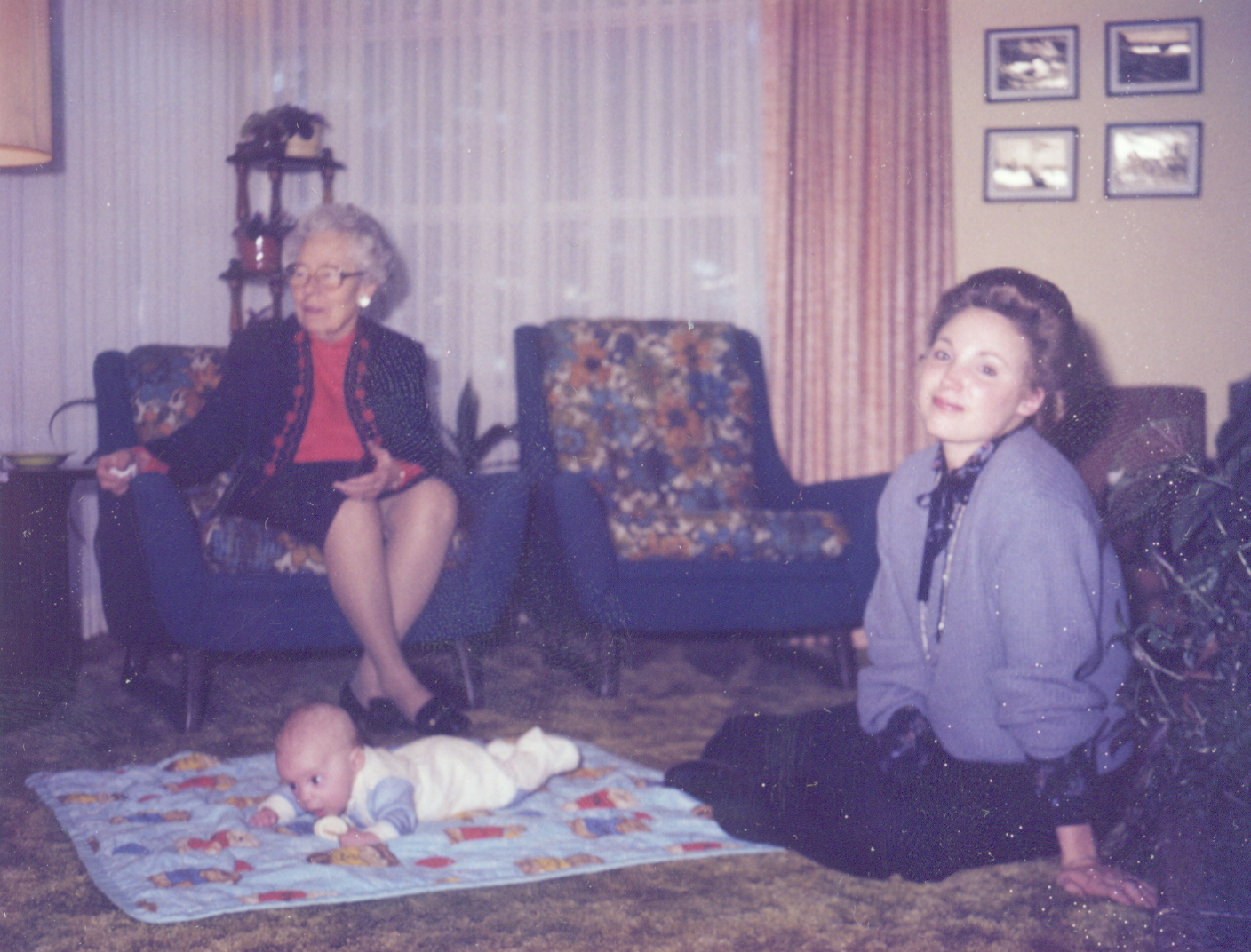Here’s a true story for you:
Looking for the upbeat in the midst of sad times, including dementia
This week’s post on this Dementia blog is a bit off course, in that it’s laying out an historical story, and doesn’t even mention dementia until we near the end of the post. But I think the point of it will be well-taken, since it plays on the previous posts as I struggle to find some “positives” in dementia. The post is also off course, since I told you last week to expect another issue from the Stockdale Paradox. But this post will help to better lead into that topic next week…
My husband Denny’s dad’s dad was Wilbur Hitchcock (born 1886; died 1930). He was a prominent architect in Laramie, Wyoming. He and his wife Gladys (of the Corthell family) had four children: Eliott, David, Clinton [my husband’s father] and Elinor. The children were quite young when their mother Gladys died in an emergency appendectomy. It was rough for this architect to try to raise those four little kids without a wife. So he started dating and met Verna Johanessen. They had so much in common—love for the arts and music, primarily. They became engaged, then married on November 1, 1930. Relatives looked after the kids as the couple traveled by car for a California honeymoon.
While in California, Wilbur was sightseeing, hanging out the window of the car looking at the skyscrapers (being the architect he was, even though on vacation). Another car hit Wilbur’s vehicle, resulting in breaking Wilbur’s arm. Horrifically, Wilbur died in surgery there in California of complications with his asthma during the operation.
So the new bride Verna was now a new widow on her honeymoon. She had to decide whether to go back and raise Wilbur’s kids. She didn’t know them all that well! But she had already moved her clothes to Wilbur’s house, so headed to that home, gathering the children together to discuss how they should proceed. My husband Denny’s Dad Clinton (then 5 years old) told Verna they all wanted to stay together, so it would be best to have Verna keep with them. If she didn’t stay, the children would be split up with the other relatives, none of whom could manage taking all four children at the same time.
So Verna stayed, loving and raising Wilbur’s four children. She ended up landing a job as head of the University of Wyoming Home Economics Department as well. Through that job, she put all four children through school and through college—in the Great Depression, yet. What a woman! She never remarried.
Verna was a world-wide traveler, having a special love for Japan. She also loved opera, flying to New York many a time to see such at the Metropolitan Opera House. Her favorite opera and opera singer was Verdi’s Aida with Leontyne Price in the title role. Her love for opera passed down to her husband’s grandson—my husband, Dennis, since she took him on at least one opera tour to New York. It was love for opera that brought Denny and me together… and Verna came on our second date with us! Hahah! She sat between us at a foreign film flick starring Ingrid Bergman. [Incidentally, Denny and I were married on November 1, 1980—exactly 50 years after Verna’s marriage to Den’s grandfather. In the SAME church, even: St. Matthew’s Episcopal Cathedral in Laramie.]
Verna went into dementia in her declining years. Denny’s aunt, Elinor (Hitchcock) Mullins, stopped in to check on Verna often. But Verna started leaving the stove on—one of many giveaways that living by herself was not safe. Elinor also had taken Verna for a walk around the block, passing by a house owned by the University of Wyoming and used by the Department of Home Economics (that Verna chaired at one time). UW named the house the “Verna J. Hitchcock House” in her honor, placing a prominent sign in the yard with that title. But as Elinor and Verna walked by the lovely house and saw the Verna J. Hitchcock House sign, Verna in her newly-emerging dementia was aghast, thinking it to be a “house of ill repute” and demanded the sign be taken down. So UW took it down until Verna passed.
Since it was no longer safe for Verna to live by herself, the family first placed her in Ivinson Home for Ladies, where Verna was happy to be, since her late husband was the architect for that lovely ladies’ group home on Grand Avenue in Laramie between 20th and 21st streets. But Verna wasn’t able to stay there long, since she couldn’t take care of herself due to the emerging dementia. Since taking care of oneself was a requirement for living in that space, the family sadly transferred her to the nursing home in Laramie. But sweet Verna thought she was in a new job, and thus positioned herself at the front entrance, greeting all people as they came to visit their loved ones in the nursing home.
Verna was always well-kempt, wearing a beautiful crocheted shawl on her shoulders, I remember. And she also self-appointed herself to push people in their wheelchairs down to the dining room for meals in addition to her greeting visitors to the building. One day the manager of the facility called Aunt Elinor to tell her that Verna marched into his office and demanded a raise! She was a business lady until her dying day. I think her self-appointed jobs kept that hard-working business woman content, helping her feel useful. One checkmark on the PLUS side for Dementia, I guess.


1 thought on “Verna”
Pingback: What Will Life Look Like…Because of Verna? – Dancing Through Dementia